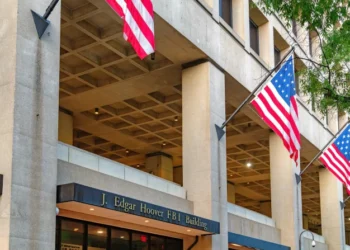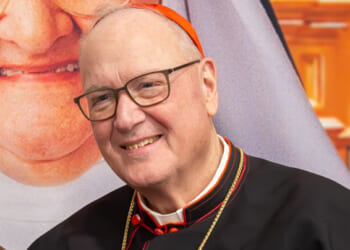Anyone who has tried to overcome a particular sin knows that sometimes grit and determination are not enough. Though we confess, pray for grace, and try to avoid the near occasions, we continue to fall. Through ancient Greek philosophy and Thomistic theology, Catholics have learned that vice can be overcome by understanding and practicing the virtue which opposes it. If we find we are moving in the wrong direction, we can turn around and head the other way.
Sometimes, however, heading in the exact opposite direction doesn’t work. Sometimes we can’t get moving at all. Like when trying to back a car out of a snow drift, without some traction, putting the car in reverse and gunning it is not always enough. Perhaps the needed traction can come in the form of practicing a virtue which is not the exact opposite of the vice in question. Perhaps it can come from turning the wheel just a bit.
The Vice-Virtue Dial
Imagine an old-fashioned mechanical dial on an appliance. If we were to place the vices, from the seven deadly sins to the more minor sins they give birth to, on one side and the virtues on the other, we would have a picture of which virtue we should try to practice when we struggle with any individual vice. In theory this should work, and it often does.
Conquering sin is never easy, especially long-term habitual sin. The simplicity of this opposing-virtue method can be encouraging. But what happens when practicing this simple-but-not-easy method leaves us just as stuck in the same sin pattern as before? Perhaps we need to adjust our Vice-Virtue dial.
Not necessarily 180 degrees across
In my own Christian journey, I have long battled a lack of Trust in God, a.k.a.: FEAR. Instead of trusting that the Lord has a good plan in each challenging life situation, I slip into trying to control situations or just plain worrying. In the confessional recently, the idea of opposing virtues was raised as Father suggested I work on gratitude. But wait! Gratitude would not be opposite from Fear on my imaginary dial, Courage would! Shouldn’t I be trying to “Joan Up” as they say, and ignite a fire of courage within myself?
Father offered a gentler method, not quite 180 degrees across from Fear. He suggested that by daily practicing gratitude for all the ways that God has cared for me, the underpinnings of Fear would gradually melt away, and Trust would emerge as the truth I could stand firmly on. As I practice the virtue of Gratitude I will grow in the Trust of the Lord’s goodness towards me.
Gratitude to Overcome Fear
Because I pray the Examen, I am already in the practice of thanking God on a daily basis. However, with this intentional act of reviewing my day in light of how God had taken care of things I had been worried about, there is movement in my battle against Fear. Gratitude, rather than raw Courage, is giving me the traction I need to become unstuck, even though it is not directly “across the dial” from Fear. As I practice this specific kind of Gratitude daily, I also call to mind the many ways God has taken care of me during the hardest times of my life. These practices nurture an abiding Trust that gradually pushes out Fear.
Understanding our Habitual Sin
Putting effort into overcoming habitual sin can yield unexpected healing and grace. Through prayer we may come to understand the root of our sin, which often is a learned response to a difficult situation. That response may be sinful, but it may have helped us to survive a traumatic time of our life. The Lord understands, forgives, and desires to restore us to a life free from sin, healed for a virtuous future that yields peace in our hearts, our lives and our relationship with Him.
While the classic opposing-virtue model holds in many cases, a priest, like a good doctor, will examine the individual penitent/patient to determine if this classic “cure” will likely yield the best results in this case. The grace of encounter in the confessional with a prayerful, discerning priest is unmatched. Because Jesus is truly present in the Sacrament of Reconciliation through the ministry of the priest, the insight given is much greater than we can possibly figure out by our own human insight. Jesus’ mercy is the medicine we all need, and His priests are given the graces to determine the proper administration of it.
All vice and all virtue are related
All vice will weaken us, and all virtue will strengthen us. The more we do our best to practice virtue, the less hold any sin will have over us. A respiratory infection can leave our whole body weaker. Walking a few miles a day and building our legs can improve our overall health. The more good choices we make, the healthier we will be, mind, body, and most importantly, soul. But prayerful discernment can aid us in our lifelong labor of sanctification.
If all of this “practicing the opposing virtues” and “adjusting the angle” has you feeling more overwhelmed than set free, Selah. His mercy endures forever. God is more interested in your heart than the perfect practice of your theology. As you continue to put forth your best effort at overcoming vice for love of Jesus, grace will flow. These tactics can be extremely helpful, but God and His mercy are not waiting for you to become an expert, or to encounter just the right priest in the confessional. He loves you where you are and will help you to become who He created you to be, a person free from vice, and free for life in Him.
Jesus, thank you for the gift of the Sacrament of Reconciliation. Thank you for the gift of discerning, prayerful priests who desire to be fonts of your mercy in the confessional. Thank you that your mercy is ever new. Please help us to discern what is the best way for us to oppose the habits of sin that have entangled us. Help us to correspond to your grace and do our best to grow in virtue, whatever virtues which will help free us from sin. We will be patient with this lifelong process, knowing that each step of the way is a step closer to you, forever.
Photo by Jason Hogan on Unsplash










